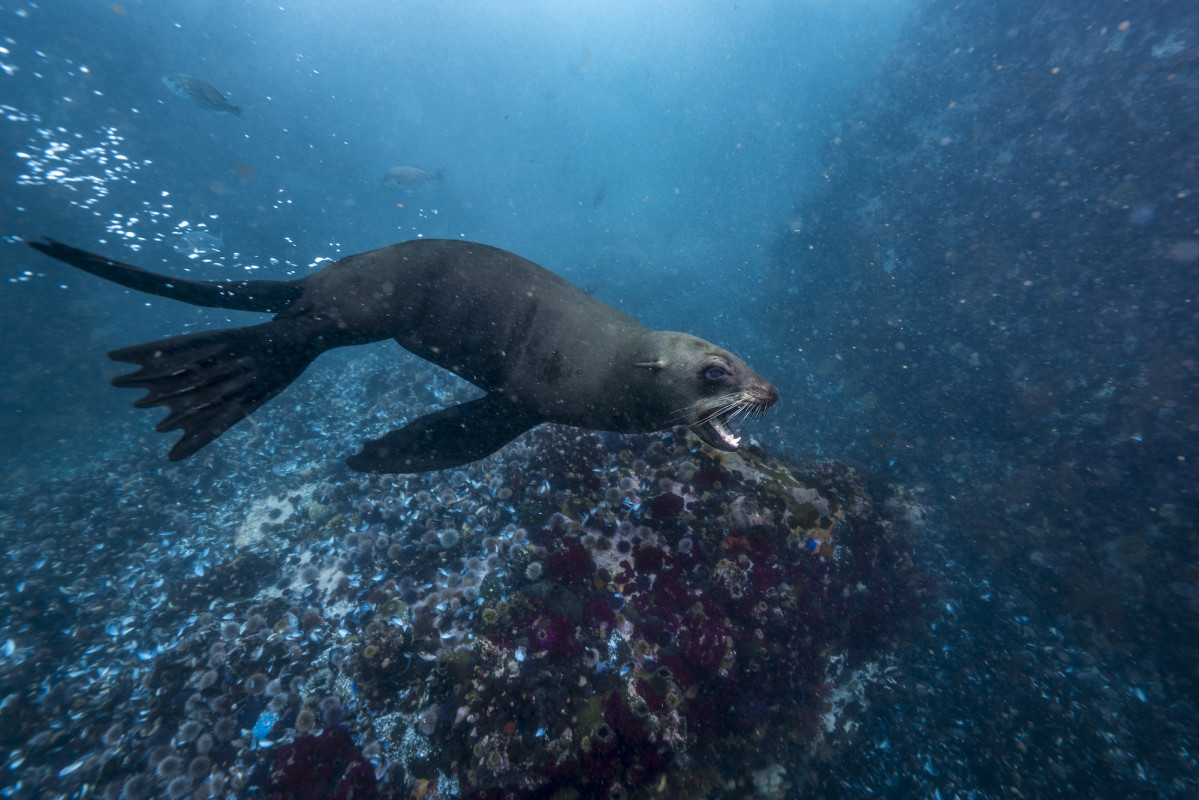
Photo: Yannick Tylle/Getty Images
For surfers in South Africa, sharks are the foremost fear when it comes to dark shadows lurking beneath the surface. Great whites, to be exact. The country is notorious for large, curious sharks. Case in point, can you remember a time recently when the WSL held an event at J-Bay, and there wasn’t a pause in competition due to a shark sighting?
But now, there’s another thing SA surfers have to worry about: seals…with rabies.
According to a report from The Guardian, nine seals in the Cape Town area have recently tested positive for rabies, amidst reports of aggressive attacks on surfers. In fact, they’re calling it, “the world’s first significant outbreak of the disease in marine mammals.” And it’s not just the positive tests; surfers are experiencing the outbreak firsthand.
Back in May, a single seal rampaged through the lineup at Cape Town’s Muizenberg Beach, attacking multiple surfers in just a matter of minutes. Deon Bing, a South African surfer and documenter, interviewed surfers following the incident on video.
“He came up, just sort of biting my board,” said one surfer. “I paddled away. I thought it was just a one-off mistake or something. But he came back, and came back. Even when I was in the surf, he came looking for me. I saw another attack, and I paddled over. Clearly, he was trying repetitively to bite people and get ahold of them. I think the seal was a bit confused. We need to find out what’s going on.”
After this incident, and others like it, authorities and researchers have begun testing the animals. Hence the nine rabies-infested seals mentioned above.
Related: Surfer Survives Shark Attack at Jeffreys Bay
However, interestingly, despite the attacks and the detection of rabies in the animals, there has been no reported transfer of the disease from seal to human. In The Guardian article, Gregg Oelofse, a coastal manager for Cape Town council, said:
“We think quite a few people have been bitten by rabid seals, but luckily no human has got infected yet. We don’t know why. Perhaps the transfer rate is low? Does salt water in their mouth reduce the viral load?”
Related: Navigating South Africa’s Scariest Big Wave, with Grant “Twiggy” Baker
For now, as officials attempt to figure out exactly what’s going on, how the seals are getting infected, and why it isn’t transferring to humans, Oelofse urges people to exercise caution. As a piece of advice to area surfers, he offered:
“If a seal is behaving weirdly or aggressively, stay well away and report it to the authorities. A relaxed seal is unlikely to pose a threat.”
***
Don’t miss another headline from SURFER! Subscribe to our newsletter, follow us on Instagram, and stay connected with the latest happenings in the world of surfing. We’re always on the lookout for amusing, interesting and engaging surf-related videos to feature on our channels.
Whether you’re a professional surfer or just an amateur, we want to see your best footage and help you share it with the world. Submit your video for a chance to be featured on SURFER and our social channels. Be sure to subscribe to our YouTube channel to watch high-quality surf videos.

